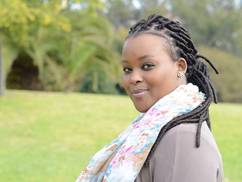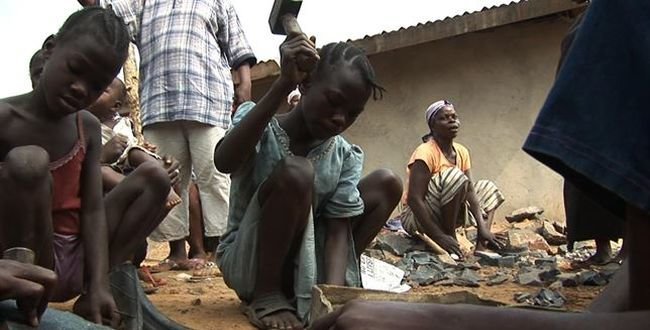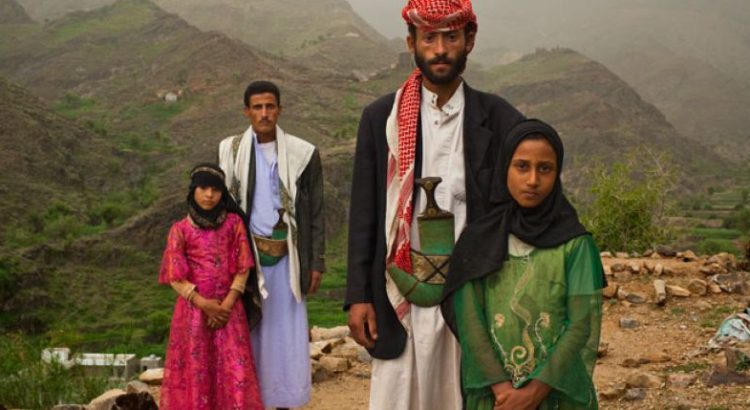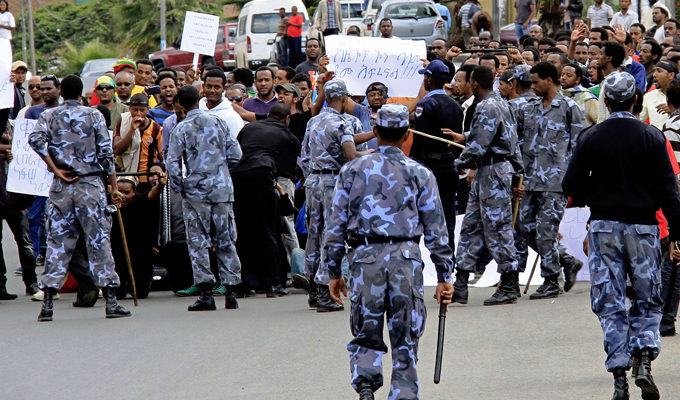Las reformas educativas en clave de resistencias
Una vorágine de mutaciones culturales presiona a los sistemas escolares en el siglo XXI, impulsando su transformación de manera acelerada; lo que permanece invariable, en la inmensa mayoría de lugares del mundo, es el sistema económico, político, social y cultural de explotación del hombre por el hombre.
El cambio educativo suele venir en presentaciones de reformas y en algunos casos de revoluciones. A veces las reformas son lo más revolucionario posible en un momento histórico dado; en otros casos las reformas sólo intentan impedir revoluciones y contradicen la propia esencia etimológica de ‘acción para volver a formar’ reproduciendo las mismas políticas y prácticas que enuncian cambiar. Muchas reformas son en realidad contrarreformas que procuran eliminar o minimizar el impacto en la acumulación de capital, de importantes conquistas sociales. Dialécticamente hablando, todos estamos de acuerdo en cambiar constantemente, sólo que algunos abiertamente aspiramos que la transformación sea el camino para construir otro mundo posible de solidaridad y justicia social en el cual el ser humano deje de ser considerado un simple consumidor de mercancías.
Respecto al cambio educativo actual Unesco (2015) plantea:
Vivimos tiempos turbulentos. El mundo está rejuveneciendo y aumentan las aspiraciones a los derechos humanos y la dignidad. Las sociedades están más conectadas que nunca, pero persisten la intolerancia y los conflictos. Han aparecido nuevos centros de poder, pero las desigualdades se han agravado y el planeta está bajo presión. Las posibilidades de un desarrollo sostenible e inclusivo son muy amplias, pero las dificultades son arduas y complejas. El mundo está cambiando: la educación debe cambiar también. (p.3)
En el presente, es creciente el interés del capitalismo globalizado por generar una centralización de las reformas educativas a escala mundial que le permita introducir de la manera más homogénea y rápida los cambios educativos que demanda el modelo de producción del siglo XXI. En contraposición, ciudadanos y magisterio entienden cada vez de manera más nítida, la urgencia de construir una agenda internacional alternativa en defensa de la educación pública.
Los Objetivos de Desarrollo Sostenible (ODS), aprobados por los países miembros de la ONU en Septiembre de 2015, expresan la tensión actual entre aspiraciones ciudadanas e intereses del gran capital. Los ODS o nueva versión de las llamadas metas del milenio[i], incorporan en esta oportunidad un objetivo específico dedicado a la educación, el cuatro, que contiene diez metas[ii] las cuales exigen ser leídas, valoradas y trabajadas con una clara visión política.
Hasta hace tan solo un par de décadas, el proceso de reformas había construido una imagen-pinza pública de cambios “generados” desde el nivel nacional, los cuales en la medida que fueran progresistas contarían con el respaldo de los organismos internacionales especializados en la agenda educativa. Hoy, se construye una imagen pública para las transformaciones educativas diametralmente opuesta. Las reformas educativas aparecen ahora como resultantes de un consenso mínimo internacional que guiará los procesos de cambio de los sistemas escolares nacionales.
No es una novedad que el centro capitalista le imponga a la periferia la ruta de las adaptaciones que requiere el modelo de producción y sus sistemas de engranaje, en este caso el educativo. La variante en el presente viene dada por el hecho de legitimar ante el público en general, los mecanismos de determinación de la agenda de cambios desde el propio centro de gobernanza global.
Ministerios de Educación Nacionales -o sus equivalentes- aparecen ahora interpelados a cambiar; ya sea conforme a las orientaciones que dictan los organismos económicos internacionales o, en la dirección convergente que acordaron sus gobiernos a través de los ODS, cuyo monitoreo, supervisión y evaluación –en el último de los casos- está a cargo del sistema de Naciones Unidas.
Al ser los sistemas escolares parte sustantiva de los mecanismos de gobernabilidad de los Estados Nacionales, ello impone dinámicas de alianzas y acuerdos entre perspectivas e intereses comunes a escala planetaria por parte de quienes gobiernan; lo cual debería hallar un correlato entre quienes resistimos. El curso que tomen los cambios educativos en cada lugar dependerá, en gran medida, de la correlación de fuerzas que caracterice al mundo político en un momento histórico dado y de las tensiones existentes entre las clases en esa sociedad.
Pero, ¿cuál es el lugar de enunciación de las reformas educativas? Ante todo es importante destacar el papel de la ex URSS en el triunfo del paradigma de la educación para todos y todas. En 1917 los bolcheviques toman el poder en la Rusia Zarista e inician la revolución socialista en uno de los países más atrasados, económicamente hablando, sin acueductos, electricidad y con muy pocas escuelas. En solo décadas logran concretar una política pública que hasta ese momento parecía ser una utopía a nivel mundial: hacer llegar la educación a todo el territorio de Rusia y la Unión Soviética, es decir lograr la masificación educativa en un país. La educación para todos y todas dejó de ser una aspiración de ilustrados, maestros(as), sectores progresistas y políticos radicales en el mundo, para convertirse en un paradigma emergente de la gestión pública.
Al culminar la Segunda Guerra Mundial creció la esperanza de los pueblos del mundo respecto a las posibilidades de la educación para evitar otra confrontación a gran escala y como camino para mejorar sus sociedades. No es osado señalar que la educación de masas es una conquista del socialismo, independientemente de la degeneración burocrática y liquidacionista de la experiencia soviética desde el periodo post leninista.
Por ello, el surgimiento del paradigma mundial de la educación de masas debemos ubicarlo en el marco de las tensiones propias de la crisis capitalista que llevó a las dos guerras mundiales del siglo XX y la insurgencia de la revolución rusa.
En ese contexto, al finalizar la Segunda Guerra Mundial los sectores capitalistas más conservadores se vieron forzados a aceptar, no sólo la creación de la UNESCO, sino el impulso de la masificación de la educación a escala planetaria.
Con la creación de la ONU se estructuran un conjunto de organismos especializados en las distintas áreas de gobierno e interés político, los cuales fueron delineados a partir de los acuerdos de la conferencia monetaria y financiera de las Naciones Unidas (1944). En el caso de la educación se asume que la tarea central le corresponde a UNESCO, quien puede establecer alianzas en determinados casos con otras agencias dependientes del sistema de Naciones Unidas e incluso más allá.
Sin embargo, con el desembarco del neoliberalismo educativo en la década de los ochenta del siglo XX, organismos económicos globales como el Banco Mundial (BM) la Organización para la Cooperación y el Desarrollo Económico (OCDE), el Banco Interamericano de Desarrollo (BID), entre otros, decidieron fortalecer sus oficinas de educación y asumir un mayor protagonismo en las propuestas, diseños y orientación de las reformas educativas globales. De esa etapa hasta el presente han evolucionado adquiriendo un protagonismo central que amenaza, incluso, la continuidad de convergencia de la agenda educativa en UNESCO.
Es necesario señalar que UNESCO sigue siendo -por carencia de otro espacio mundial similar o parecido- el lugar privilegiado para expresar las tensiones entre lo económico, lo político, lo pedagógico y lo social; por ello, mantiene su carácter progresivo respecto a las instancias económicas señaladas. El creciente protagonismo en la agenda educativa de los organismos económicos globales amenaza con sustraerle a UNESCO su papel de líder en el sector, dejándole sólo protagonismo en cultura y comunicación.
Hoy en casi todos los sistemas educativos del mundo se habla de calidad de la educación como preocupación central de las reformas y el mecanismo hegemónico que se está utilizando para determinar su curso es el modelo del Programa Internacional para la Evaluación de Estudiantes o PISA (por sus siglas en inglés). PISA es diseñada y puesta en marcha por la OCDE, convirtiéndose su propuesta en el paradigma de la medición y estandarización educativa a nivel global. La direccionalidad estratégica de la política educativa suele ser decidida por el centro de poder del sistema mundo derivado del acuerdo de Bretton Woods (1944)[iii].
La bitácora de las reformas educativas se inicia en las reuniones del G7 (o G8); su memorándum activa al Fondo Monetario Internacional (FMI) quien delinea la ruta de solución a los “problemas” y transformaciones que requieren los sistemas educativos nacionales para satisfacer las demandas del modelo de producción. Estas recetas generan demandas concretas para los sistemas escolares, vistos como lugares donde se forma la mano de obra especializada y/o calificada que requiere el capital en la coyuntura.
El Banco Mundial (BM), Banco Interamericano de Desarrollo (BID) y la Organización para la Cooperación y el Desarrollo Económico (OCDE), entre otros, estructuran y coordinan las políticas económicas y sociales, así como escenarios presupuestarios financieros por regiones y países, para los sistemas educativos a partir de los acuerdos del G7 (ó G8) y el FMI.
Luego, estas decisiones y orientaciones son legitimadas ante el público en general, mediante documentos, discursos, libros, declaraciones, noticias, estudios, que circulan de manera profusa en la organización y desarrollo de Conferencias internacionales, regionales, especiales, sectoriales organizadas según la magnitud de la transformación requerida, en la telaraña de instituciones pertenecientes a:
(1) el sistema de Naciones Unidas (UNESCO, FAO, UNICEF, PNUMA, entre otras);
(2) muchas organizaciones no gubernamentales internacionales y nacionales;
(3) las cada día más influyentes Fundaciones Filantrópicas pertenecientes a grandes magnates industriales y financieros.
Los debates, acuerdos y resoluciones que acompañan esta operación son difundidos de manera profusa en formatos de noticias, estudios especializados, artículos de opinión, programas especiales de TV y radio, colecciones bibliográficas, videos, hasta en canciones y películas por parte de la industria cultural. El propósito es construir hegemonía cultural que propicie la cimentación de consenso social, respecto a la inminente necesidad de emprender cambios en una determinada dirección y sector, en este caso el educativo.
Esta dinámica permea los debates nacionales y construye “viabilidad política” para emprender los cambios: La narrativa de presentación en cada país, solía ser la propia de un clamor de la ciudadanía local, ocultando –en la mayoría de los casos- su lugar de enunciación real, la teleología del cambio propuesto y la dependencia nacional respecto a centros de poder económico mundial. Estas iniciativas que antes se imponían bajo el formato inicial de “Comisiones Nacionales de Currículo” y “Comisiones de Estado para la Reforma Educativa”; hoy suelen presentarse como “Comisiones por la Calidad Educativa” y, la narrativa que las alimenta es la de la estandarización de los aprendizajes.
Reformas, contrarreformas y educación publica
Las reformas y contrarreformas educativas se convirtieron en los mecanismos que expresaban las tensiones entre educación para élites y educación para todos y todas. Desde la perspectiva de los intereses del gran capital se procuró hipotecar las reformas educativas a los requerimientos del modo de producción; desde las resistencias al modelo capitalista, las reformas fueron consideradas oportunidades para avanzar en el concepto de educación pública, gratuita, popular y de la calidad incluyente.
Al analizar los procesos de reformas educativas generadas desde el surgimiento del Sistema de Naciones Unidas podemos identificar tres grandes ciclos, un número similar de operaciones de control de destino y cinco modas.
El primer ciclo fue el de la masificación de la educación. Éste aparece vinculado a la reestructuración del mundo capitalista post segunda guerra mundial; el cual demandaba mano de obra más especializada, burocracia gubernamental capaz de absorber y comunicar los nuevos códigos de gobernanza mundial y, la generación de una inmigración masiva de sectores de la población del campo a la ciudad en los países de la periferia capitalista que posibilitara la industrialización de la agricultura.
El segundo ciclo, es el de las reformas educativas neoliberales que se inicia en los ochenta con la crisis de las deudas externas, la revolución de las Tecnologías de la Comunicación y de la Información y, la reestructuración económica global. El propósito de este ciclo es la promoción de la privatización y la mercantilización educativa como mecanismos para liberar al sector público de la “carga” presupuestaria que implicaba la educación pública.
El tercer ciclo, se inicia a finales de los noventa e inicios del siglo XXI; siendo éste el ciclo el de la estandarización de la evaluación de docentes y estudiantes, la expansión acelerada de la mercantilización, la virtualización de la educación y del Apagón Pedagógico Global (APG).
En este ciclo se concreta el abandono de la agenda de la educación superior o universitaria por buena parte de los organismos educativos internacionales, dejando a merced del mercado y los rankings universitarios el destino del sector. UNESCO, por ejemplo, una vez culminada la primera Conferencia Mundial de Educación Superior (CMES, 1998) paradójicamente cierra su dirección de educación superior.
Por otra parte, en las últimas décadas se distinguen tres grandes operaciones de control de destino caracterizadas por: (a) la creciente centralización internacional de la agenda de reformas de los sistemas escolares nacionales, (b) la homogenización de las narrativas ciudadanas y gubernamentales respecto a la educación y, (c) la determinación del uso de los recursos del PIB y el presupuesto público en educación a través de la imposición de las llamadas “tendencias” del cambio.
En el primero de los casos se logra construir una lógica mediante la cual las Conferencias Mundiales, Regionales y/ o Sectoriales constituyen el espacio privilegiado para consensuar las rutas marco de las reformas educativas nacionales. En ese sentido se oculta el papel de la economía en la orientación estratégica de las reformas, dotando a algunos organismos internacionales del sector educación con una especie de aureola de “neutralidad” que les faculta para elaborar documentos base, permeados por la agenda económica en educación, los cuales son presentados con el lenguaje propio de los educadores y el sector educativo.
En el segundo, se logra construir un sentido común de lo educativo que tiene como rango distintivo “despolitizar” el debate en el sector. La despolitización procura ocultar la dependencia de los sistemas educativos respecto a las agendas de dominación política global. Si éstas se ocultan resulta más limitadas las posibilidades de que emerjan propuestas alternativas al modelo hegemónico de dominación, de neo colonización cultural y –como lo alerta Henry Giroux- de conformación de zombis políticos como sustitutos de la ciudadanía crítica. Un indicador claro de ello, son las dinámicas mediante las cuales los sistemas escolares fueron abandonando -progresiva y aceleradamente- – las finalidades, tareas y estrategias vinculadas al pleno desarrollo de la personalidad que les caracterizó a sus inicios.
En el tercero, se logra consensuar la determinación de un monto mínimo del PIB (6%) y del presupuesto público (20%) para el sector de educación. Detengámonos brevemente en este último aspecto. Esta conquista de carácter progresivo, que sintetizaba una aspiración histórica del magisterio y sus organizaciones sindicales para garantizar el funcionamiento de robustos sistemas escolares nacionales y la ampliación de la cobertura de la educación pública, comenzó a ser vista como una importante porción del presupuesto público por parte de las grandes transnacionales del sector y para los empresarios locales.
Cada vez más economistas, administradores, especialistas en informática, comienzan a ocupar los cargos de Ministros de Educación o sus equivalentes; en muchos casos ya ni los viceministros del sector son educadores, ni tienen experiencias mínimas de aula en los sistemas escolares.
El Foro Mundial de Educación realizado en Incheon, Corea (2015) -donde se consensuaron las metas y el Marco de Acción 2030 para el sector- contó con la casi nula presencia de docentes en comparación con el protagonismo de los directores de los organismos económicos globales, los representantes de la filantropía empresarial y grandes transnacionales del sector educativo[iv]. En este sentido, el logro más importante de este Foro que fue consensuar un monto mínimo del PIB y del presupuesto para alcanzar metas en EPT 2030, resultó ser un escenario privilegiado para allanarle el camino a las grandes transnacionales del sector tecnológico y de la medición estandarizada, quienes entienden el 6% PIB y el 20% del presupuesto público educativo, como un mercado global a disputar.
Hoy buena parte de este monto –del PIB y el presupuesto público en educación- está siendo invertido en la compra de chatarra tecnológica de rápida obsolescencia, el cual va a parar a las finanzas de las grandes trasnacionales informáticas. Otra porción es destinada a la aplicación de las pruebas estandarizadas (PISA y Ranking universitario, como ejemplos) cuyos resultados vienen prediseñados con orientaciones para las políticas públicas educativas. Crecientes montos del presupuesto educativo se destinan en compras de materiales bibliográficos a los grandes consorcios editoriales, así como a las corporaciones de alimentos que invaden el mercado de las llamadas políticas compensatorias y los programa sociales que se viabilizan a través de la educación. Finalmente, otra porción importante del PIB y el Presupuesto Público del sector se utiliza en infraestructura y actualización de las condiciones de planta física para albergar plataformas tecnológicas. Todo en nombre del necesario cambio educativo.
Paradójicamente, en momentos en los cuales se logra acordar un piso mínimo de inversión en educación, se genera una desinversión en salarios y condiciones de trabajo de los docentes y, en requerimientos que emanen de la determinación de necesidades, prioridades y aspiraciones desde las propias escuelas.
Analizados los ciclos y las operaciones de control a distancia, veamos ahora el último de los elementos: las modas educativas. Ellas se convierten en elemento discursivo central sobre el cuál gravitan las reformas educativas en cada uno de los ciclos y operaciones de control.
Las modas educativas que fragmentan la pedagogía
El fragmento es la herramienta ontológica y epistemológica predilecta del capitalismo para imponer su dominio. Por su parte el análisis de la realidad como totalidad y la dialéctica entre lo global y lo local, emergen como antítesis de ese proceso epistémico de dominación. Por caminos distintos a los de otros campos profesionales, la pedagogía se auto constituyó en la ciencia o la convergencia de ciencias que estudian al ser humano en su proceso de aprendizaje no limitándose a lo cognitivo, sino relacionando la organización escolar con la realidad histórica, política, económica y social concreta.
Esta comprensión de la relación entre el todo y las partes, dota a la pedagogía de perspectivas políticas no siempre compatibles con el sistema. Por ello, se inicia un proceso inducido desde esferas económicas, tanto en el magisterio como en las políticas públicas, de ruptura con la posibilidad de interpretación holística de la realidad. Las modas y “novedades discursivas acompañan y hacen “creíbles” para el público en general, las contrarreformas educativas que debilitan los avances progresistas precedentes.
Desde los años cincuenta del siglo XX las reformas dejan de hablar de las pedagogías, sustituyéndolas en distintos momentos por alguno de sus componentes como epicentro de la actividad de cambio educativo. Se habla de la importancia de trabajar un determinado fragmento de la pedagogía y se desacredita el potencial del conjunto de ellos actuando en la cotidianidad educativa. No desconozco con ello que detrás de cualquier enfoque pedagógico subyace una ontología y una epistemología política que condiciona su teleología. Lo que pretendo subrayar es el desarrollo de contrarreformas educativas que se fundamentan en modas educativas para romper cualquier posibilidad de interpretación de la realidad como totalidad.
Primero fue la moda de las didácticas (´50s), seguida de la moda de la formación de directores, supervisores y planificadores (´60s), posteriormente las modas del gerencialismo y la evaluación cualitativa (´70s). En la década de los ochenta del siglo pasado desembarca la moda educativa de más larga duración, la del currículo, la cual se instaló en los sistemas escolares durando casi treinta años, además con concepciones curriculares separatistas de las políticas y prácticas pedagógicas.
En cada una de estas modas se nos dijo que el fragmento era el epicentro de la actividad pedagógica y el elemento más importante para las reformas educativas. El común identificador de las modas educativas lo constituye, la concepción nomotética del ser humano, la invisibilización de la tríada contexto-docente-estudiante en interacción, y especialmente, la ruptura con la interpretación de la relación entre lo general y lo particular, del todo con las partes, de lo escolar con el contexto, es decir de la totalidad con lo cotidiano del hecho educativo.
Esta dinámica logró permear la estructura y el diseño organizacional de muchos Ministerios de Educación, los cuales cuentan, con direcciones de planificación, currículo, evaluación, supervisión, entre otros, pero no cuentan con una instancia organizacional que las integre; peor aún aparecen separadas administrativamente en vice ministerios distintos que no se articulan entre sí. El objetivo de romper con la mirada integral e integradora del hecho educativo fue realizado mediante la imposición de modas a partir de fragmentos de la pedagogía.
La moda más reciente es la de la evaluación de los sistemas educativos (dos primeras décadas del siglo XXI) con dos aristas centrales: la del rendimiento de los aprendizajes; limitándolo a cuatro áreas (lectura y escritura, matemáticas, tecnología y nociones de ciencia) y, de los docentes (uso del tiempo escolar, rendimiento estudiantil, mecanización de la carrera docente). En el caso de la educación superior se impone el modelo de los rankings. Se pretende ahora decir que lo importante son los resultados de estas evaluaciones y clasificaciones.
A tal punto han logrado construir hegemonía para sus propósitos que buena parte de las reformas y/o contrarreformas educativas que vienen generándose gravitan y son determinadas por los resultados de las pruebas PISA/OCDE y los rankings universitarios surgidos del tejido de sistemas estadísticos internacionales promovidos por el Banco Mundial y la OCDE.
Paralelo a las modas educativas, y con el propósito de destruir cualquier resistencia a la regresión educativa en marcha, se ha generado una renovada ofensiva contra el magisterio y la idea de planteles escolares. Estos mecanismos buscan socavar y destruir el espacio de la educación pública. Veamos las expresiones de cada una de ellas.
La docencia una profesión en riesgo de desaparición
La dominación y las resistencias son procesos objetivos y subjetivos, que se expresan en la realidad social, en este caso educativa. Los docentes somos actores/autores fundamentales en la construcción de ciudadanía no domesticada, interpretación científica del mundo, el aprender a aprender y el desarrollo del pensamiento crítico. Si se indaga con meridiana precisión, encontraremos que detrás de cada proyecto emancipatorio colectivo ha sido notoria la presencia de docentes, quienes coadyuvaron a abrir -desde las ideas y el ejemplo de sus posiciones- el camino. Por ello, el capitalismo desprecia tanto a los docentes.
El capitalismo ha querido arrebatar hasta la identidad a quiénes ejercen la docencia. Los apologistas del capitalismo han señalando, en distintos momentos y regiones –incluso desde paradigmas aparentemente progresistas- que, por ejemplo, no es correcto llamarse maestro o profesor. Esta línea discursiva se complementa con la que señala que “cualquiera puede dar clase y no se requiere mayor formación profesional que aquella propia de la transferencia de conocimientos” –como si la docencia y la pedagogía fueran simples tecnologías de enseñanza de contenidos- o que “la docencia es una seudo profesión de paso, es decir, para ejercerla mientras se alcanza el dominio de otra profesión de larga duración”.
Lo que está ocurriendo en muchos países donde se presentan las contrarreformas neoliberales de nueva generación (siglo XXI), no es otra cosa que un gigantesco ensayo del gran capital para aplicar la más feroz involución educativa en el plano de la educación pública con un capítulo especial en la eliminación de la profesión que lo ha caracterizado: la docencia. Si logran imponerlo en algunos países procurarán generalizarlos como nuevo modelo para América Latina y el Mundo.
Estas contrarreformas en marcha en distintas latitudes del planeta, son para el capitalismo en educación del presente, lo que en los noventa fue la Chile de Pinochet. El centro de las reformas neoliberales de nueva generación apuntan a la destrucción de la profesión docente atacando:
(a) El prestigio, la tradición y el reconocimiento social de los centros de formación profesional, especialmente aquellas caracterizadas por su perfil crítico como las normales y muchos institutos pedagógicos;
(b) la estabilidad laboral, que en las décadas precedentes había logrado un estatus singular en buena parte de las legislaciones nacionales; el Caballo de Troya que utilizan para ello son las evaluaciones docentes, la imposición de nuevos modelos de sistemas de ingreso y ascenso, el horizonte difuso de los sistemas de jubilaciones y pensiones docentes, muchos de ellos generados en la frontera de lo extra jurídico.
Paralelo a ello, en muchos lugares se está procediendo a la creación de un “ejército de reserva docente” que trabajaría por periodos cortos de 1 a 6 años, para lo cual son preparados mediante modelos Fast Track de enseñanza de técnicas básicas de transferencia de conocimiento. Finalmente, mediante el impulso de modelos de virtualización educativa.
Si no son necesarios docentes, no existe razón en las políticas públicas para financiar o poner en marcha normales o universidades pedagógicas. Para su progresiva sustitución se diseñan programas de formación docente inicial y de formación permanente de los docentes en servicio, paralelos o independientes a los que se realizan en las normales o universidades pedagógicas en la Región.
Los administradores de los sistemas educativos nacionales comienzan a aplicar el modelo norteamericano de formación docente Fast Track, cuyo rasgo más distintivo es la sustitución de lo pedagógico por tecnología de la enseñanza administrados por ahora en la mayoría de los casos, por y desde los Ministerios de Educación Nacional o sus equivalentes, pero que seguramente serán privatizados en el corto plazo;
(c) a las organizaciones sindicales autónomas del magisterio. Para ello coaptan, condicionan o desprestigian a las direcciones sindicales más patronales, persiguen a las más combativas y colocan nuevos mecanismos y obstáculos para limitar la sindicalización y las posibilidades de procesar cotizaciones sindicales. Sindicatos débiles o sumisos no serán herramientas eficaces del magisterio para resistir;
(d) el concepto de lo público, abriendo paso a la idea de mercado educativo. La profundización de las iniciativas de mercantilización y privatización educativa son crecientes, en las cuales el docente es un simple asalariado condenado a trabajar un fragmento de la mercancía educativa, objetivada en títulos.
El propósito de cada una de estas iniciativas no es otro que poder mostrar que se pueden administrar y llevar adelante sistemas educativos sin maestros(as), sin profesoras(as) y sin la profesión docente. Pero la ofensiva de las contrarreformas de nueva generación no se detiene allí. El nuevo espacio de desmantelamiento de la educación pública es el plantel y el aula como lugares de encuentro y construcción del imaginario colectivo de los sistemas escolares masificados.
Plantel educativo o pantalla virtual: la tecnología acecha a la escuela
Si la prospectiva planificadora de los sistemas educativos, desde la lógica capitalista, ya no requiere normales ni universidades pedagógicas porque la docencia deja de ser una profesión, el capítulo siguiente de la contrarreforma neoliberal será la destrucción del plantel escolar como espacio educativo socialmente construido para la enseñanza-aprendizaje durante los siglos XIX y XX.
La virtualización juega un papel especial en esta tarea. Un dato ilustra esta tendencia, durante el año 2014 desde el Banco interamericano de Desarrollo (BID) se promovió el modelo de enseñanza de “pirámide invertida” que en esencia y síntesis planteaba que dada la proliferación de computadores caseros y portátiles, los teléfonos celulares inteligentes y las tabletas electrónicas, así como la expansión de la internet y el wifi, estaba llegando el momento de desarrollar un modelo de aprendizaje “casero” basado en videos masivos y uniformes de enseñanza, en el cual la escuela se convierta fundamentalmente en un espacio de evaluación.
Evidentemente, ello se alimenta de la tendencia a sustituir inversión en infraestructura escolar por servicios tecnológicos -hardware y software- para mantener la expansión económica de la industria de las tecnologías de la comunicación y la información a escala global. La disputa por las partes del PIB y el presupuesto público en educación es cada vez más feroz y como en los demás campos confronta al capital nacional con el trasnacional.
Apagón Pedagógico Global (APG)
Todos los procesos descritos anteriormente nos han permitido señalar, desde hace ya varios años, el riesgo cierto, que en el marco de las transformaciones del capitalismo mundial del siglo XXI se genere un Apagón Pedagógico Global (APG). En la carta que el 9 de julio de 2015 doscientos treinta y seis educadores e investigadores educativos de todo el mundo le entregáramos a la señora Irina Bokova, Directora General de la UNESCO, así lo alertamos. Esta tendencia a generar un APG se expresa en:
(a) la fragmentación de la pedagogía, en el impulso de modas temporales de algunos de sus componentes (didácticas, planeación, gerencialismo, evaluación, currículo, sistemas de evaluación escolar) que terminan generando una despedagogización de la educación y especialmente de la escolaridad;
(b) una desvaloración institucional y social de la profesión docente que conlleva a impulsar la idea que cualquier titulado puede ejercer la docencia, rompiéndose la noción de profesionalidad en el sector y de carrera docente e, incluso cuestionando la existencia de normales y universidades que forman docentes;
(c) un creciente discurso de desvaloración de la escuela, del centro educativo, con alternativas que golpean la noción de educación pública, como lo son la virtualización, la educación en casa o el concepto de espacios de aprendizajes como sustitutos permanentes de plantel y aula;
(d) la evaluación de aprendizajes en dos áreas cognitivas (pensamiento lógico matemático / lectura y escritura), una informativa (conocimiento sobre ciencias) y una instrumental (uso de tecnología) creando la noción que el resto de los aprendizajes son de segundo orden. Todo aquello que apunte al desarrollo integral del ser, individual y social, y la construcción de ciudadanía pasa a ser accesorio y prescindible. La estandarización de los criterios y valores de estas cuatro áreas de aprendizajes se presentan como equivalentes a la calidad educativa como aspiración ciudadana colectiva.
No es osado ni delirante plantear que de continuar esta tendencia al APG capitalista en educación, en las próximas décadas podría desaparecer la escuela y la escolaridad como las hemos conocido en los últimos siglos. El sustituto de los sistemas educativos pareciera ser una especie de apartheid educacional que llevaría la exclusión educativa a un nivel inimaginable en el presente, conduciendo a la humanidad a una barbarie civilizacional sin precedentes.
El giro economicista de las contrarreformas educativas que se está imponiendo de manera abierta y sin medias tintas, obliga a abrir un debate mundial respecto a su impacto en el corto y mediano plazo.
No es tiempo de lecturas románticas o aparentemente “despolitizadas”. Ni las reformas educativas ni los Objetivos de Desarrollo Sostenible (ODS) son neutros y los resultados de su implementación dependerán en buena medida de la orientación política que alcance la sociedad mundial en el corto y mediano plazo..
Lo que está en juego, es el futuro de la educación pública de masas en el mundo. Es tiempo de revisar, analizar y proyectar el papel de las resistencias en la actual coyuntura de las reformas y contrarreformas educativas a escala global. Las reformas educativas que no se piensan, diseñan y aplican democráticamente con los y las docentes, terminan en dominación y conflictos para las sociedades.
Quizá sea tiempo de soñar con una organización de los educadores a nivel mundial que no esté atrapada por las lógicas de los partidos del status quo mundial ni por las trasnacionales económicas; es tiempo de pensarnos desde el protagonismo central de los docentes de aula. Las resistencias son la única garantía de una educación pública para todos y todas como camino para construir juntos otro mundo posible.
Lista de referencias y trabajo recientes vinculados
Bonilla-Molina, L. (2015). Calidad de la educación: Ideas para seguir transformando la educación. Ediciones CIM. Caracas Venezuela.
Bonilla-Molina, L (2016). Educación en la agenda para la elección del nuevo(a) Secretario (a) General de Naciones Unidas. Disponible en http://otrasvoceseneducacion.org/ archivos/99542
Bonilla-Molina, L. (2016). No dejemos solos a las maestras y maestros(as). (Carta a los candidatos a la secretaría general de la ONU). Disponible en http://questiondigital.com/?p=34137
Bonilla-Molina, L. (2016). La universidad Latinoamericana ¿Tiene falla de origen? Disponible en http://otrasvoceseneducacion.org/archivos/101099
Bonilla-Molina, L. (2016). Universidad, apertura, cierre de carreras y programas de formación. Disponible en http://otrasvoceseneducacion.org/archivos/108540
Giroux, Henry (2011). Zombie Politics and Culture in the Age of Casino Capitalism. Series: Popular Culture and Everyday Life – Volume 23- EEUU.
ONU (2016). Objetivos de Desarrollo Sostenible. Disponible en: http://www.un.org/sustainabledevelopment/es/education
UNESCO (2015). Replantear la educación: ¿Hacia el bien común mundial? Ediciones Unesco. París. Francia. Disponible en http://unesdoc.unesco.org/images/ 0023/002326/232697s.pdf
UNESCO (2016). Unesco Science Report: Towards 2030. Ediciones Unesco. Paris Francia. Disponible en http://unesdoc.unesco.org/images/0023/002354/235406e.pdf
[i] Su análisis específico escapa a los propósitos y límites de extensión de este trabajo por lo que lo desarrollaré en otro artículo.
[ii] Ver las metas en http://www.un.org/sustainabledevelopment/es/education/
[iii] La Conferencia de Bretton Woods deliberó en Julio de 1944 sentando las bases del sistema monetario, financiero y de gobernabilidad que rige al capitalismo mundial desde ese momento.
[iv] Esto generó una firme carta de rechazo de centenares de educación en el mundo, la cual me correspondió consignar el 9 de julio de 2015 ante la Directora General de la UNESCO y actual candidata a la Secretaria General de la ONU Dra. Irina Bokova. Pueden leer y firmar la carta en la siguiente dirección electrónica https://www.change.org/p/maestros(as)-as-profesoras-es-investigadores-as-en-educacion-estudiantes-familias-organizaciones-del-magisterio-centros-de-investigacion-educativa-organizaciones-y-movimientos-soci-si-compartes-el-contenido-por-favor-expresa-tu-adhesion
Publicado originalmente en la Revista Viento Sur N° 147














 Users Today : 15
Users Today : 15 Total Users : 35460032
Total Users : 35460032 Views Today : 23
Views Today : 23 Total views : 3418654
Total views : 3418654